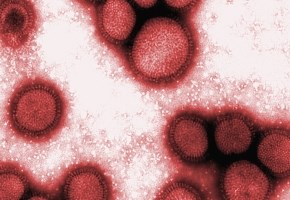There have been no outbreaks in Greater Sudbury of a “superbug” called Community-associated Methicillin-resistant Staphylococcus aureus that doctors fear will soon spread across Canada, says the city's associate medical officer of health.
“We haven't had any outbreaks where there's been a cluster brought to our attention,” says Dr. Vera Etches.
The bacteria was previously confined to hospitals. But according to an article published this week in the Canadian Medical Association Journal, epidemics are cropping up more often out in the community in the United States, and increasingly, in Canada.
Crowded places like daycares, schools, correctional facilities, locker rooms and homeless shelters are ripe breeding grounds for the bug, says Etches. People are at risk of getting infections if they have open sores, poor hygiene and are in close contact with others.
Outbreaks have been recorded in Alberta, B.C., Saskatchewan, Manitoba and Ontario, including Toronto, Montreal and Quebec City.
Everybody has a certain number of Staphylococcus bacteria on their skin, she says.
“It's called methicillin-resistant because that's a type of antibiotics that Staphylococcus is able to evade,” Etches says.
“It's also called community acquired because this is a type of bacteria that has been in our hospitals and been tracking it there.
“Sometimes, now, people are showing up in the hospital who have now history of being in the hospital previously, and they have a MRSA strain. They seem to have got it out there in the community.”
Infections often begin with a bit of redness and heat, and can develop into boils. Severe infections spread very quickly. In rare cases, the bacteria can cause toxic shock syndrome and a rare type of pneumonia.
In 2005, the bacteria killed a 30-year-old Calgary man who was otherwise healthy, as well as a three-month-old toddler in Toronto. Both died of lung abscesses associated with the infection.
People can avoid the infection by washing their hands, keeping kids at home if a draining wound cannot be consistently covered and practising respiratory etiquette like covering coughs.
“We are working with some of those populations that are at higher risk...to promote infection-control practices. We address a number of infections, but they also help to prevent MRSA.”
Although the bacteria is resistant the methicillin, it can be successfully treated with other types of antibiotics, she says.
“There's actually been guidelines published recently for Canada for physicians to be able to choose an appropriate type of antibiotic,” Etches says.
“The antibiotics, when we know what we're dealing with, are effective. Physicians have to keep in mind that a skin infection might be caused by a bacteria that is methicillin-resistant.”
She encourages physicians not to over-prescribe antibiotics so bacteria don't become resistant to the drugs, as they did in the case of CA-MRSA.
